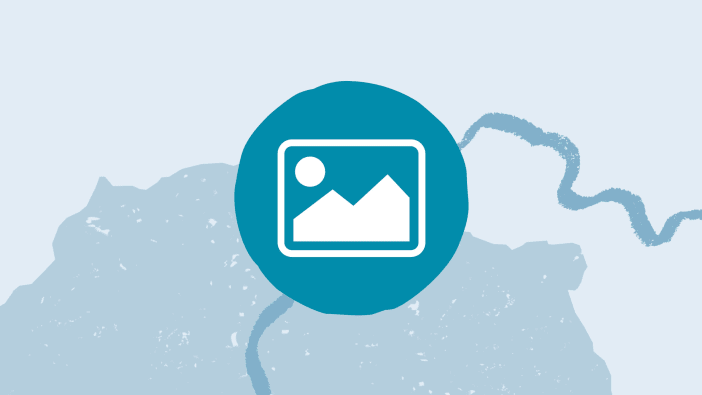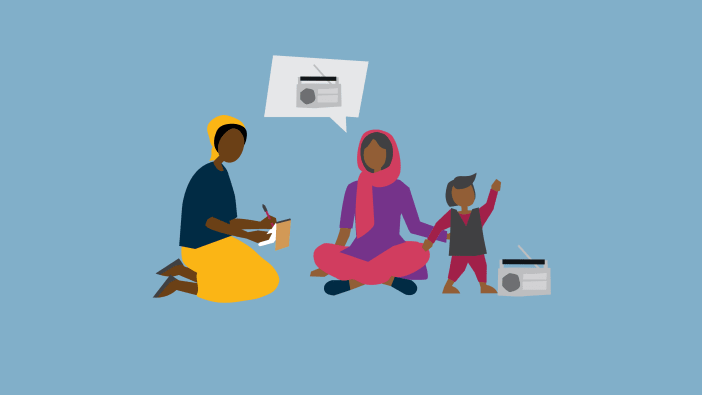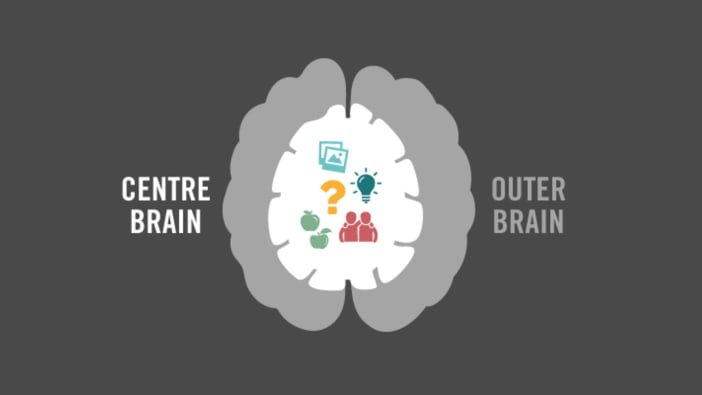The 'A B C' s' of Radio listener-learning
by Ross James.
If you used radio programming in a community health and development project, which of the following comments from a radio listener would you hope for?
- ‘Now I know something about that topic’ or
- ‘Now I know how to make a change in my life.’
Radio programming works best when we provide ideas, or ‘pictures for the mind’, to motivate listeners to take action. I’d be disappointed if a listener responded to my radio programme with the first sentence. We need to help radio listeners learn from health programmes – not just listen to them.
If your work provides the opportunity to use radio you can maximise your impact with the ABCs of listener-learning. These are what I call learning priorities because they force us to learn about the listeners so that we can help them to learn – not just listen. Here are some brief guidelines for planning a radio programme to take advantage of the strengths of radio and minimise its weaknesses.
A Association
(What do they know already that is associated with the new information?)
- Increase understanding by using familiar words. In one study of radio interviews, health workers used an unfamiliar or difficult word every 17 seconds on average.
- Use relevant proverbs, poetry or scripture.
- Describe familiar images to produce powerful pictures for the mind. The idea of a withered flower when it is deprived of water, dramatically illustrates what happens to a child with diarrhoea if it does not get enough liquid to drink.
- Let listeners hear the crinkle of paper, the pouring of water and the tinkling of a spoon in a jug as you give instructions on how to prepare ORS (oral rehydration solution) for example. Remember – in radio we only have the sense of hearing to work with. So use silence or pauses, pitch, volume, rhythm and sound effects. Don’t just talk – use every opportunity to bring life into your programmes.
- Let the listener ‘see’, ‘touch’, ‘taste’ and ‘smell’.
- What information does the listener need now? Plan topics to coincide with relevant seasons or other events in the year. Listeners learn if the information can be used straight away, not in several months’ time.
B Believable
(Are the communication sources believable and trustworthy?)
- Use as role models, people who have already done what is being recommended and can tell their story.
- Health or community development workers should try things themselves before trying to convince others. We should be able to say on the radio programme, ‘I have done this myself.’
- If you invite an expert to take part as a speaker, get them to talk about personal experience as much as possible. Too many experts just talk about theory or give general information. Bring out their human emotion.
C Change
(Can they change what they’re doing now and follow the recommendations?)
- Is the product available? Can the listener afford it? Is the service or facility, such as an immunisation clinic, open when our listener needs it? Our reputation and that of the radio station will be damaged if we pass on information that cannot be used.
- Give an alternative suggestion if listeners cannot do what is recommended. For example, if listeners cannot obtain packets of oral rehydration salts, give instructions on how to make their own at home.
- Demonstrate that what is being recommended can be done. One health programmer arranged for a popular radio presenter to donate blood. The blood donation unit set up their equipment right there in the studio! It was live on air! The response was overwhelming. Listeners ‘saw’ what was involved as the presenter described his experience. More importantly, listeners realised that, if the radio presenter could do it, they could also.
D Desirable
(How can this achieve what they hope for?)
- Motivate listeners by showing them how they can benefit, or achieve something important or of value to them, if they use the information. One campaign encouraged mothers to prepare nutritious food for their children by explaining how a child would gain strength to help in the fields and would concentrate more at school. Magazine or television advertisements ‘sell’ a benefit to be gained from buying products such as drinks or soaps. It’s surprising how such ‘marketing techniques’ can be included in community health and development radio programmes. But do use them carefully and sensitively.
E Extend
(What other communication channels will extend the radio message?)
- Radio programmes need the support of more permanent ways of communication. Consider organising and providing literature or information services such as telephone counselling or clinics. Let listeners know where they can get further advice.
- Sometimes it is more effective to target programmes for people who can influence the people we really want to reach. For example, it may be more effective to inform the families of cigarette smokers of the dangers so that they can then try and influence the smokers. Breastfeeding can be successfully promoted by targeting husbands to change their attitudes and encourage and support wives who choose to breastfeed babies.
- Listeners are more likely to learn and change their behaviour and thinking, the more they discuss what they have heard on the radio. Encourage them to talk with family and friends about what they’ve heard, and to take action together.
F Fit
(What radio programmes best fit the situation?)
- What programmes will best encourage the learning you want to achieve?
- What kind of programmes will work best? Interviews? Drama? Interactive radio techniques? 60-second ‘spots’ or public service announcements? News stories?
- How should the key messages be built together to form blocks of learning?
The ABCs of listener-learning bring together the many facts radio programmers need to learn about their listeners, so that they can help them to learn. Isn’t that what good fieldwork is all about?
Dr Ross James is a communication consultant with the School of Public Health, Curtin University, Western Australia. He provides training throughout Asia on the use of radio programming for health promotion. His address is: 1 Chapel Court, Kingsley, WA 6026, Australia. Fax: 618-9309 2553.
E-mail: [email protected]









